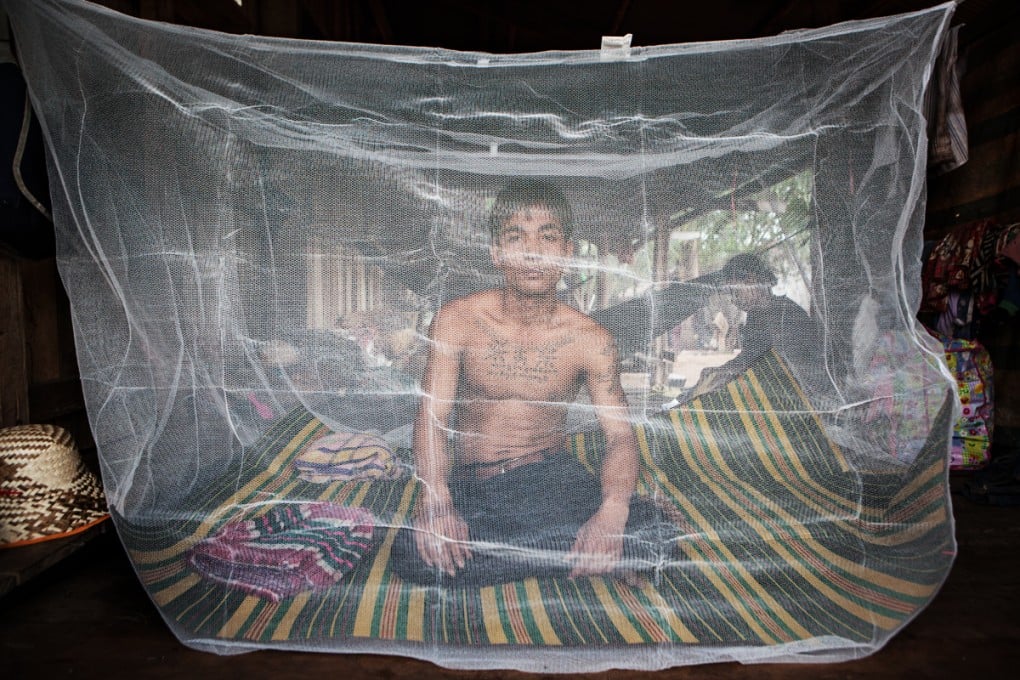Combat zone: the fight against malaria in Cambodia
For decades, a province in western Cambodia has been ground zero for drug-resistant strains of malaria. Now, a number of organisations are hoping to end the disease's deadly grip once and for all. Kit Gillet visits Pailin. Pictures by Jeffrey Lau

Sitting in a cluttered yard behind a series of wooden shacks, chickens pecking in the dust all around, Meoun Naem waits to be given a second dose of drugs. He's sweating and the whites of his eyes have a yellow hue, a legacy of earlier bouts of malaria; Meoun Naem estimates that this is the 10th time he has contracted the disease.
The 30-year-old has recently been diagnosed with Plasmodium falciparum, the deadliest strain of malaria. He's weak and has been unable to work for several days.
"It started with a high fever, muscle and joint pain and continued from there," he says.
He hitched a ride from the farm on which he earns US$5 a day as a seasonal worker to the village of Salakhoa, close to the Cambodian-Thai border. He came to get tested and, as it proved necessary, treated by a member of the Village Malaria Workers, a network of trained volunteers set up over the past few years to combat one of the biggest threats to surface in recent decades in the global fight against the disease.
In December 2008, researchers published a letter in the (NEJM) based on a study conducted on malaria patients in the west of Cambodia. The study showed evidence that malaria parasites in the area were developing resistance to artemisinin, which, when combined with other anti-malarial drugs, has formed one of the few effective treatments against Plasmodium falciparum.
While the news was a major setback in the fight against malaria, the source of this new threat wasn't exactly a surprise; since the 1970s, western Cambodia's Pailin province, a poor, agricultural area that is still recovering from decades of brutal Khmer Rouge rule, has held the ominous distinction of being ground zero for new drug-resistant malaria strains.
"In the past 50 years, this Thai-Cambodian border area has been the very birthplace of all drug resistance," says Steven Bjorge, speaking late last year, before he retired as team leader of the malaria and vector-borne diseases department of the World Health Organisation in Cambodia. "Every drug that has replaced previous drugs has become resistant first in this area before becoming resistant elsewhere."
